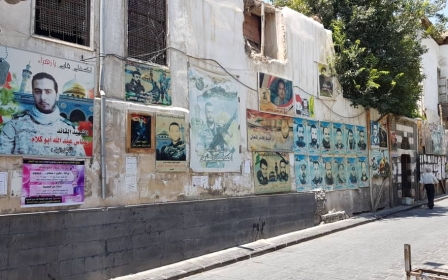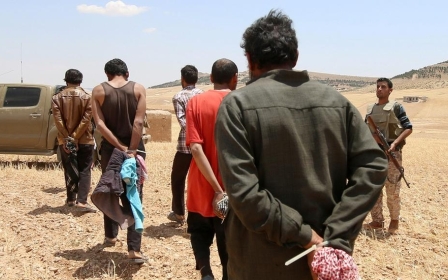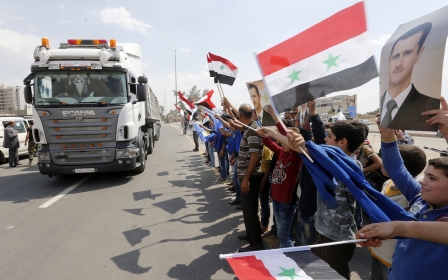Syrian Kurdish delegation in Damascus to boost ties with Assad government
A Syrian Kurdish delegation including US allies is in Damascus this week for talks with the Syrian government, according to an official.
The meeting – which is the first such official summit between President Bashar al-Assad’s government and the Syrian Kurds since the war erupted in 2011 – could have huge consequences for the future of northern Syria, large areas of which are held by Kurdish forces.
The Kurdish-led Syrian Democratic Forces’ (SDF) political wing, the Syrian Democratic Council, is in the capital to discuss ways to retain autonomy over the areas it controls – about a quarter of the country.
"A delegation from the Syrian Democratic Council is paying a first official visit to Damascus at the invitation of the government," the body’s Arab co-chair Riad Darar said.
"We are working towards a settlement for northern Syria.
"We hope that the discussions on the situation in the north will be positive," Darar said, adding that they were being held "without preconditions".
The meetings are primarily thought to be aimed at discussing services in Kurdish-held areas of northern Syria, but Darar said the talks had no set agenda and could move on to security and political matters.
Northern tensions
The US has backed the SDF in its battles against the Islamic State group (IS) with air power and advisers on the ground and Assad maintains that is an occupying force in Syria - he has repeatedly called for it to leave the country.
Meanwhile, the SDF has become more circumspect about its relationship with Washington, as the US makes contradictory and non-committal statements on its future role in Syria.
Despite losing some areas it once held to Turkish-backed rebel groups, the Syrian Kurds control important areas containing oil wealth, agricultural land and cities – including the predominantly Arab Raqqa.
'We hope that the discussions on the situation in the north will be positive'
- Riad Darar, SDC co-chair
Were Damascus to take back some control of this area, it would benefit greatly from its resources and cement its control over the majority of the country.
The SDF is under pressure from Ankara – which considers its leading component the YPG to be an extension of the Turkey-based PKK fighters – to relinquish control of key areas along the Turkish border.
Turkey has shown particular interest in Arab-majority areas such as Manbij, which the YPG agreed to pull out of in a US-brokered deal.
Syria’s Kurds have been excluded in the ailing UN-led peace negotiations that have been running throughout most of the war.
In the latest attempt to reach a diplomatic breakthrough, the UN is busy setting up a committee to rework Syria’s constitution, including government, opposition and independent figures.
Darar said the talks were doomed to fail.
"I don't think this committee will carry out its role," he said. "The door of Geneva will be shut."
New MEE newsletter: Jerusalem Dispatch
Sign up to get the latest insights and analysis on Israel-Palestine, alongside Turkey Unpacked and other MEE newsletters
Middle East Eye delivers independent and unrivalled coverage and analysis of the Middle East, North Africa and beyond. To learn more about republishing this content and the associated fees, please fill out this form. More about MEE can be found here.




